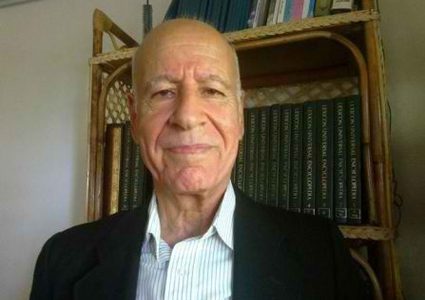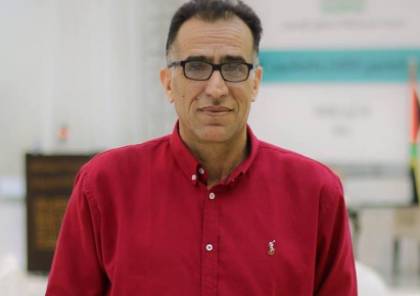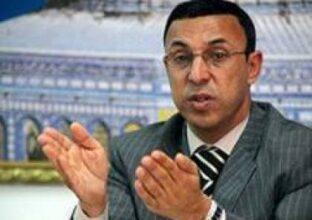Israel braces for confessions
Al-Khamisa News Network - Gaza

Author: Tawfiq Abu Shomer
Israelis are preparing for European countries to recognize a Palestinian state. The most immediate preparations are military: Israeli experts expect the West Bank to erupt in waves of Palestinian resistance after President Mahmoud Abbas’s speech to the UN General Assembly. In this context, Major General Avi Blot of the Home Front Command warned of the consequences of the president’s speech for the Israeli scene. In comments to The Jerusalem Post on 22-9-2025 he predicted that the West Bank would ignite with Palestinian resistance. He therefore ordered the deployment of large military forces in the West Bank and increased security around shopping areas and road junctions, noting that Palestinian militants would exploit the Jewish holidays to carry out their plans!
The above is only the quickest Israeli military response. Israeli politicians and research centers had long expected global recognition of a Palestinian state by countries such as Britain, France, Canada, Australia, Portugal and others in Europe, and they prepared responses. One of the most prominent immediate Israeli steps to counter this wave would be to accelerate land seizure and settlement activity in Palestinian territory. The first step was Prime Minister Netanyahu’s announcement on 11-9-2025 of the implementation of the E1 project. Netanyahu said: “A Palestinian state cannot be established!”
The second step came from Netanyahu himself: “After I return from the UN General Assembly meeting I will decide my position on European states’ recognition of a Palestinian state.” Among the expected measures are the annexation of the Jordan Valley to Israel and the annexation of other areas of the West Bank.
Foreign Minister Gideon Saar described countries recognizing a Palestinian state as having committed a gross and dangerous act, saying they had rewarded “terrorists” and the Palestinian Authority and asserting that Israel’s future will be decided in Jerusalem alone. He also spoke with the leader of the British opposition, who strongly opposes the British government’s decision to recognize a Palestinian state.
Israel’s UN ambassador Danny Danon said: “These recognitions of a Palestinian state are hollow, ignore reality, and will not defeat Hamas.”
U.S. Ambassador to Israel Mike Huckabee posted on his page the results of a poll he attributed to Amihai Shikli, the minister for the Diaspora, highlighting that 87% of the British public and 71% of the French public oppose Britain’s and France’s recognition of a Palestinian state. He added that the two leaders, Starmer and Macron, are the weakest leaders in Europe!
One of the most prominent positions of the pro-Israel lobby in America came from AIPAC, which said: “Europe should have supported Israeli democracy instead of rewarding Hamas terrorism.”
The American Jewish Committee (AJC) posted on its website its position on recognition of a Palestinian state: “Recognizing Palestine is an explicit call to commit murder and rape.”
The Republican and Jewish lobby in Congress was voiced by Republican Senator Lindsey Graham, who said: “Since the end of World War II six million Jews were exterminated in Nazi camps because they were Jews. Now the leaders of the civilized world are rewarding the new Nazis (Hamas) by recognizing a Palestinian state. Their recognition is an admission that there is a Palestinian state without leadership, without borders and without a capital — both of which threaten Israel’s security. Recognizing Palestine is rewarding the largest massacre of Jews since World War II. Hamas, Hezbollah and the Houthis do not want a two-national-state solution; they want to drown Israel in the sea!”
A senior official close to President Trump, who declined to be named, told Agence France-Presse: “Our focus will remain on diplomacy, not on empty media statements (recognizing Palestine).”
Haaretz columnist Gideon Levy said the recognitions of Palestine are formal and evasive — a substitute for imposing sanctions on Israel, including economic and military penalties. He called them merely a media punishment and questioned what kind of Palestinian state this would be: Who will evacuate the settlers and remove the occupation from its borders? Is this recognition a substantive stance on the Palestinian cause? What is the Arab position on this recognition? Will it develop as Colombia did when it cut economic ties with Israel, or like Norway when it withdrew tens of billions of its investments from Israel? He added that this state is contingent on two conditions: first, reforming the Palestinian Authority and removing Hamas from power, because Hamas is the opposite of the Palestinian national project.
There are events in Israel’s history that show its success in monitoring developments and confronting their outcomes. Israel succeeded with UN Partition Plan 181 on 29-11-1947, gaining a larger share of land in the partition despite Jews being a minority at the time. Israel received 55% of the land, while Palestinians received 43%, even though Palestinians made up 70% of the population. This was not accidental but planned by the global Jewish lobby. Officials of the Jewish Agency, even before Israel’s founding, closely followed the UN committee tasked with the partition decision (UNSCOP), infiltrated it and lobbied the member states of the committee, which numbered eleven.
UNSCOP proposed three solutions to the Palestinian problem: a state with an Arab majority, the two-state solution, or a single bi-national state. About nine years after the partition decision, and after Israel had presented to the world that the Palestinians had rejected the plan, former Prime Minister and Foreign Minister Moshe Sharett published a secret letter he had sent to Ben-Gurion before the vote on the decision and before Israel’s founding as evidence of meticulous follow-up. He wrote: “Twenty-five countries will vote for the partition plan, 13 will oppose it, 17 will abstain, and two will be absent.”
The final result, after the Jewish Agency’s follow-up with the committee and participating countries, was as Sharett predicted, demonstrating proficiency in the art of follow-up rather than clairvoyance — unlike what happens in developing or “sleeping” countries. Many Arab states canceled long-term projects in education, culture, arts and limited their future efforts to commercial, industrial and healthcare activities from the 1960s and 1970s into the third millennium.
Finally, I always return to a memory from 1975 when Palestinians succeeded for the first time in mobilizing international public opinion at the UN General Assembly on 10-11-1975 to pass a resolution that declared Zionism a form of “racism and racial discrimination,” Resolution 3379. Seventy-two countries voted in favor, 35 voted against. Supporters of the resolution relied on earlier resolutions from 1963 calling on the world to reject all racist movements. Palestinians and many Arab and other states celebrated the decision. I will always remember what Chaim Herzog, Israel’s ambassador to the United Nations and father of current President Isaac Herzog, did when he tore up the paper containing the resolution and threw it to the floor while standing at the General Assembly podium, saying: “This day is akin to Kristallnacht, when Hitler burned Jewish synagogues in Germany in 1938.”
It was hard to believe that the Palestinians themselves agreed to rescind the resolution sixteen years later after Israel conditioned the Palestinians, during the Oslo peace negotiations, on agreeing to its annulment in order for Israel to continue talks. On 16-12-1991 the General Assembly revoked the resolution, and 111 countries voted in favor of revocation!



